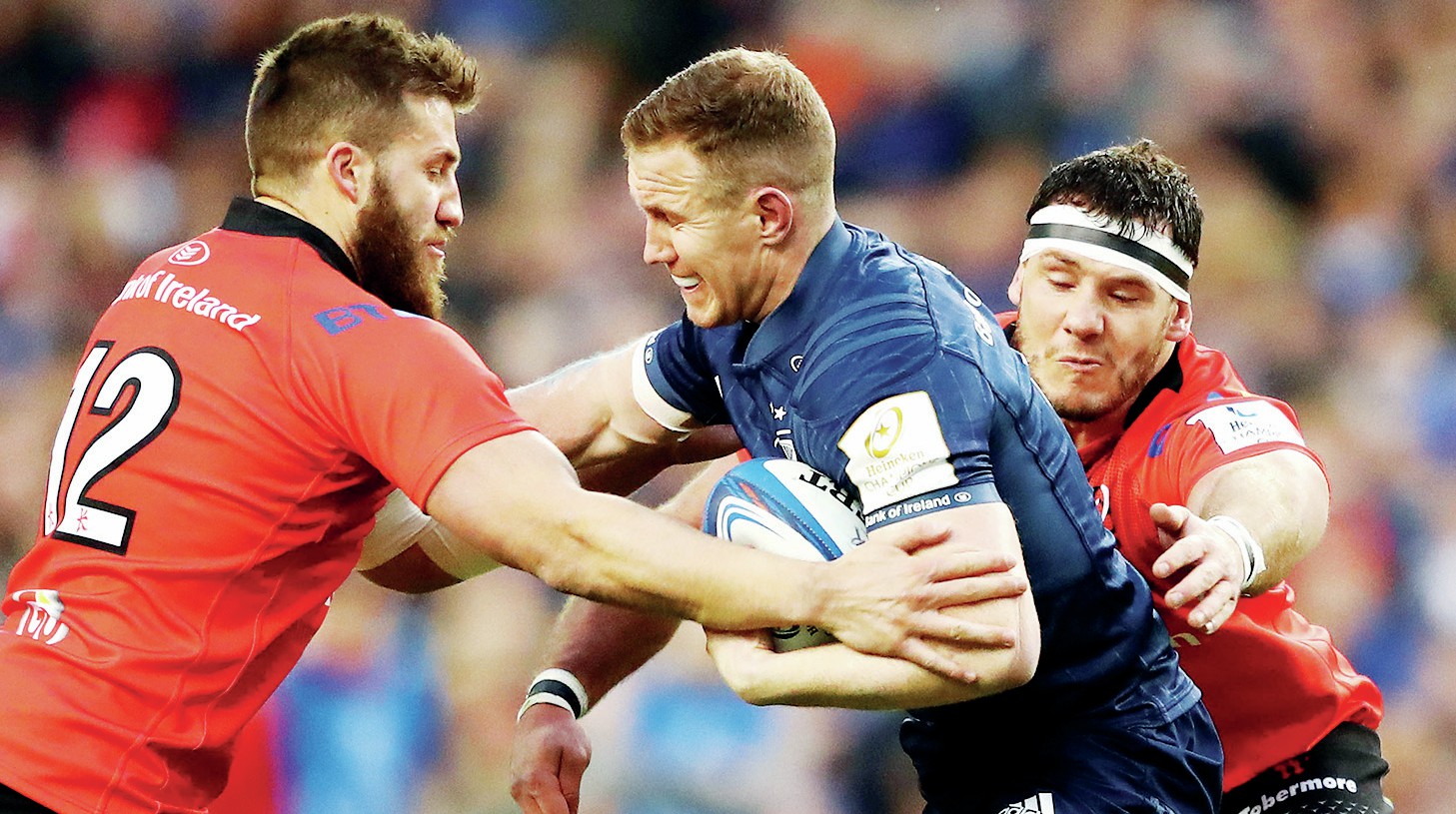Marines help O’Loughlin get in shape for Exeter

When Rory O'Loughlin met Exeter's director of rugby Rob Baxter earlier this year to discuss moving from Leinster to Devon, he was asked a direction question: why would you want to leave such a successful side?
The Ireland wing, who won four league winners medals and was on the bench in two Heineken Champions Cup finals, was not following a welltrodden path with few players making the journey to England in the last decade.
“I had been there a long time and you can get too comfortable,” said the 28- year old who won his Ireland cap against Japan in Shizuoka in 2017. “I wanted to try something fresh and see how I would fit in somewhere else. I spoke to my agent at the start of last season and asked him to have a look around. I was in my last year with Leinster and they were slow to open contract talks because of Covid.
“My agent asked which clubs I would be interested in. Exeter were at the top of the list and I had a Zoom call with Rob and Ali Hepher (head coach) after Christmas. By the time Leinster came back with an offer, I had decided to move.
“Like Leinster, Exeter have won their league and the Champions Cup and they have the same aspirations. It was a tough decision because I had spent my senior career at Leinster, but I fancied playing in the Premiership where you are pushed hard every week. It is tougher to get into the top four than it is in the United Rugby Championship.”
O'Loughlin played at Sandy Park twice in a Leinster shirt and the atmosphere at the ground on both occasions was one of the reasons why he put the Chiefs at the top of his list. “It was a big game atmosphere,” he said. “I have been coached to play a certain way for the last seven years and it is exciting to be part of something different. You realise that there is more than one way of approaching the game and I hope to become a better player.”
O'Loughlin said it was a shock to the system when he started pre-season training and the players spent two days with the Royal Marines who initially questioned whether they were up to the endurance challenges they were presented with.
“They went hard on us in the first two sessions, looking to see whether we were up for it and prepared to take it seriously,” he said. “We had to stand in line, march and do pressups and once they realised we were serious, they put us through our paces. It was physically tough but it brought us together because we had to rely on each other.
“The second day was one of the toughest I have experienced. It was torture at times but you learned to trust each other. There were moments when you wondered whether you could keep going and it really tested you mentally.”
O'Loughlin had been with Leinster for a week when Stuart Lancaster joined as attack coach, a year after resigning as England's head coach following the World Cup the Rugby Football Union had hosted.
“He came in at a good time for me and I got on very well with him,” said O'Loughlin. “It took me a while to get into the first team because of injuries and he pushed for young players to be selected where before there had been a reliance on older ones.
“Stuart was very open with the playing squad about how things had gone wrong at the World Cup and the reasons why that happened. He spoke about how he had struggled to get back his love for the game and he has thrived at Leinster because he runs the training day-to-day.”